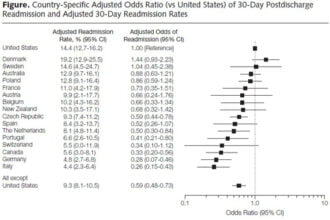By Robert Rowley, MD
By Robert Rowley, MD
Utilization Management (UM) is ubiquitous in healthcare. It is a system of authorizations for procedures and some referrals, for the determination of medical necessity vs. elective, cosmetic or experimental procedures, for determining bed-day allowances in hospitals, and for establishing preferred drug formularies. It is a set of rules developed by payers to manage resources in a fee-for-service environment, where the payment model incentivizes provider maximization of service volume. UM rules are seen by payers as necessary in order to rein in runaway costs. Higher costs mean higher health insurance premiums, and insurers are in competition with each other over premiums.
 Healthcare providers (doctors, hospitals, and all others) see UM rules as a “necessary evil” (at best) to control cost, but it represents an administrative burden that gets in the way of delivering care. The rules sometimes seem arbitrary, and add to the administrative overhead for a medical practice or hospital. There is a dynamic tension between “medical quality” and “medical cost.”
Healthcare providers (doctors, hospitals, and all others) see UM rules as a “necessary evil” (at best) to control cost, but it represents an administrative burden that gets in the way of delivering care. The rules sometimes seem arbitrary, and add to the administrative overhead for a medical practice or hospital. There is a dynamic tension between “medical quality” and “medical cost.”
Utilization Management is a by-product of a fee-for-service system. What will its role be as we transition from fee-for-service to a more value-based payment methodology?
The emerging importance of Collaborative, Patient-Centered Care Plans
Shared Care Plans are becoming increasingly important as we look to deliver care in a more value-oriented fashion. The Medicare Chronic Care Management program has, at its core, the creation of a shared Care Plan, and the awareness and participation of the patient in that plan. So what are “Care Plans” anyway? If you ask 10 physicians, you may get 10 different answers.
Most physicians consider a Care Plan to be the “plan” segment of their chart notes, where recommendations made to the patient, prescriptions, labs and imaging to be ordered, possible referrals, and follow-up appointments are documented. Yes, this is a kind of Care Plan. However, that means that every doctor who sees that patient may be coming up with, and working from, a different plan – one created within their own practice. Merging of care plans usually comes by correspondence between clinicians, and it often is the responsibility of the primary care physician (PCP) to put these together in a way that the patient can use.
Layered on top of this are recommendations from Quality Management programs (HEDIS measures, and the like). These can take the form of a prompt (“this patient is due for a mammogram”, or “this diabetic patient has a blood pressure above target”), and can remind the clinician (usually the PCP) to do things on this visit. Or it may be on a “to do” list for the patient that might require some form of outreach. Health plans also generate (at considerable expense) reports to providers about possible deviations from quality goals, such as lapses in renewing ongoing medications — “Gaps in Care” reports.
This traditional way of constructing a Care Plan is a start. But can we do better?
Introducing Artificial Intelligence into Care Plan creation
Much of clinical judgment is a matter of pattern recognition. A clinician, though aware of overall care guidelines supported by clinical evidence, will often use a subjective, even unconscious, element of pattern recognition – “this situation reminds me of something similar I have seen before, so if I do what worked then, it may work in the situation at hand.” We call this “clinical judgment,” but really it is recognizing patterns, abstracted from all the information we know about a patient, and comparing it to one’s own experience. That is why “clinical judgment” matures with increasing experience.
Machine learning and Artificial Intelligence (AI) are a new way of identifying patterns in data, and surfacing these patterns in ways that are actionable. As we have seen, it is very similar to “clinical judgment,” except that the library of experience used for comparison can be vastly larger.
The key to ensuring that the application of AI to healthcare is as useful as possible is access to all the data. That way, full and real patterns can be identified. One can answer questions like “what happens when a patient of a particular age, gender, race, blood pressure, height and weight, who has these medical conditions and is on these medications, with these lab test results, and with this particular personal and family history, is given treatment x?” Or, “what is the best medication to add in this setting, to get from state a to state b?”
We are building this framework for universal patient-centered complete health data at Flow Health now. When there is access to full data – medical, social, self-reported, device-reported – then AI can be extraordinarily powerful. It can be used to suggest a Care Plan that is tailored to the individual patient.
Does this make a physician’s clinical judgment obsolete? No. An AI-suggested Care Plan is a suggestion (only as good as the data from which it is drawn), and it is up to the doctor to take the suggestion and act on it, or choose a different path if there is compelling reason to do otherwise. In fact, these “alternative pathways” may make the AI learning better, and the success or failure of the alternative pathway can help train the machine learning algorithms.
Universal AI-supported Care Plans can be the new UM
Let’s say that we have sufficient data to make AI-created Care Plans something useful. Let’s say they are shared with everyone involved – the providers, the patient, and the health plan. Everyone can see what the “best practice” pathway for the individual patient is – the fastest, most effective way to achieve a desired result (e.g. getting blood pressure under 140/90 for a 52-year-old African-American diabetic female already on 3 other medications and showing signs of kidney disease; or workup and treatment of a sudden onset of right lower quadrant abdominal pain in a 64-year old Caucasian male).
As noted above, if the clinician feels that an alternative pathway would be better, then it does make sense that a peer-reviewed authorization should take place. “What compelling reason that was not addressed by the AI-suggested Care Plan should be considered in order to pay for your alternative plan?” If the argument is reasonable, then (1) the alternative plan is authorized (similar to the process with UM now), and (2) the AI learning engine is incrementally improved.
In most cases, though, an AI-generated Care Plan, approved by the clinician and shared with the payer, becomes the paid-for pathway. No UM hoops, no arbitrary insertion of extra steps to achieve it. No formulary hindrances. All the barriers to quickly moving along the pathway described by the AI-supported Care Plan are removed. One “cuts to the chase” and gets to the most efficient and best quality result from the start.
This is what value-based UM should look like.
Thank you for taking the time to learn about Flow Health. Flow Health is presenting at HIMSS 2016 Venture+ forum. We invite you to see all of our #HIMSS16 posts. If you would like to know more about Flow Health and how we can help your organization succeed, please contact us today at sales@flowhealth.com.






